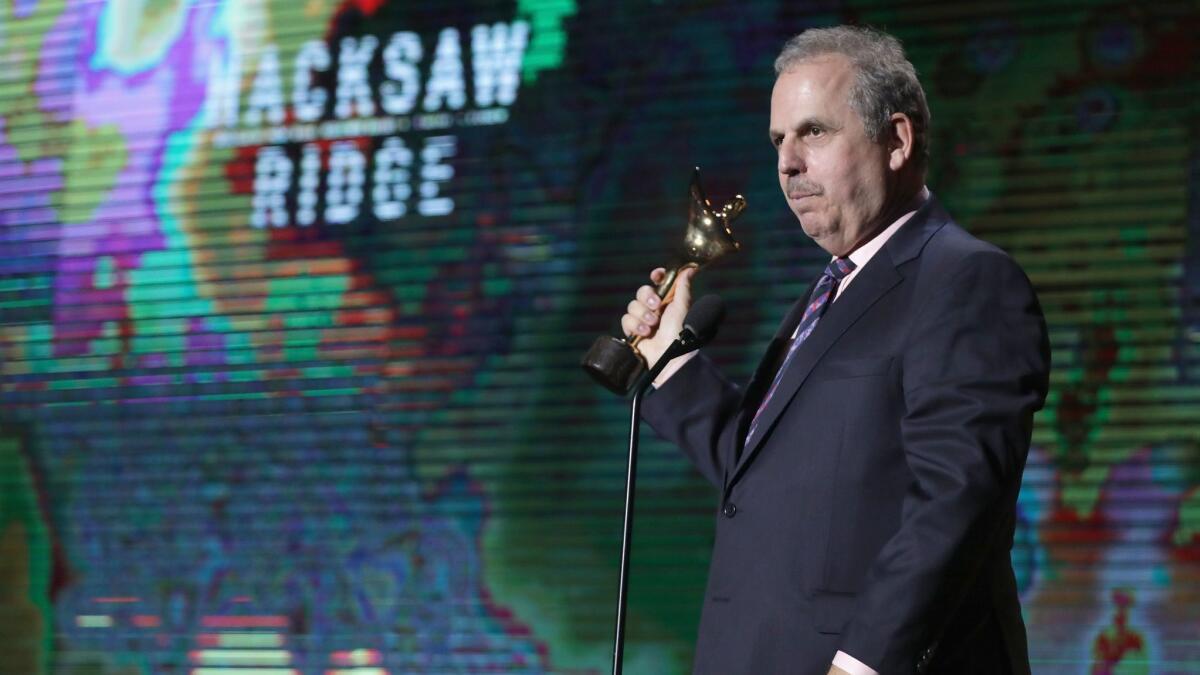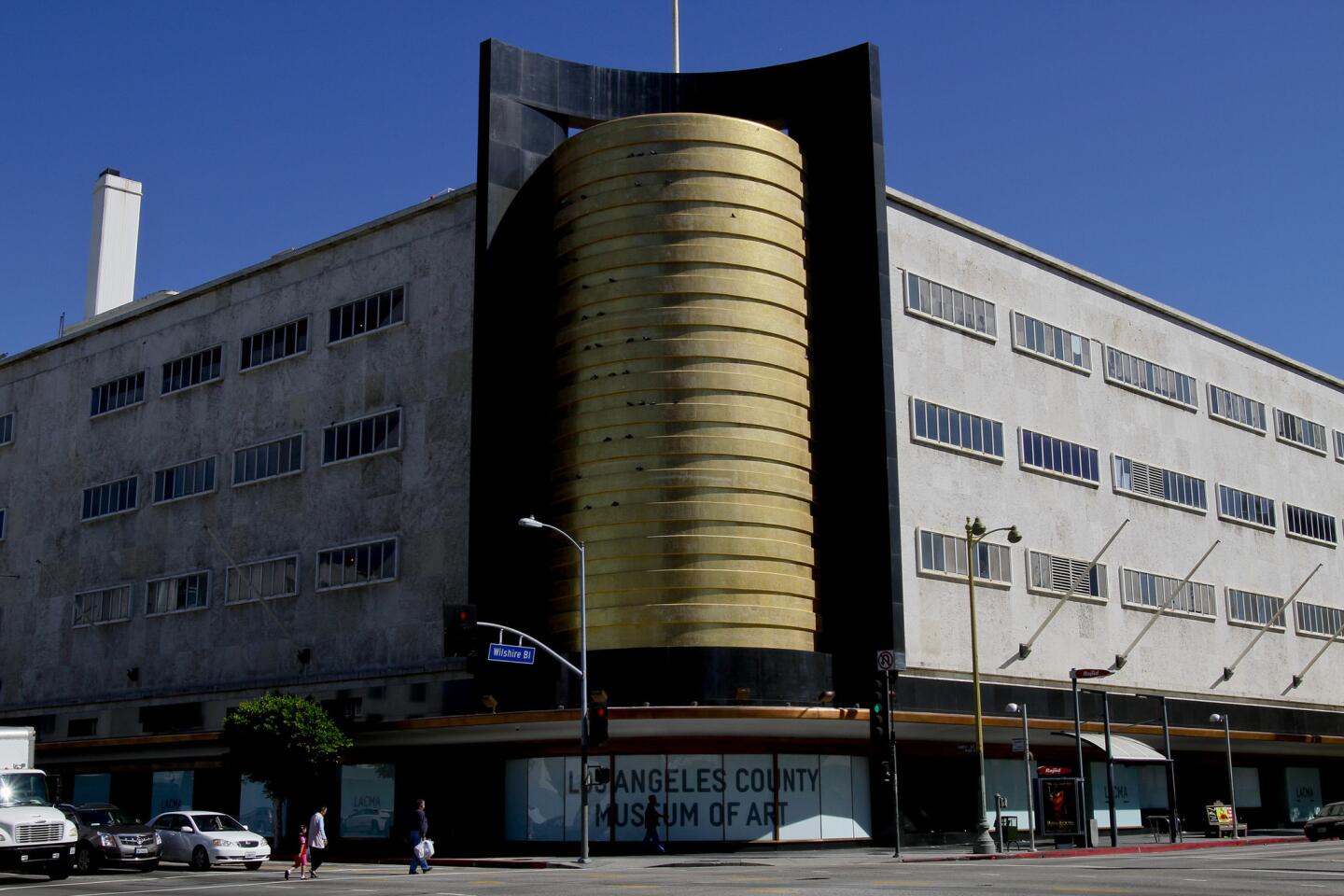Does Bill Mechanic’s angry resignation reflect a deeper schism in the film academy?
- Share via
When producer and former studio executive Bill Mechanic resigned last week from the motion picture academy’s board of governors, issuing a scorched-earth laundry list of gripes about its handling of some of the most thorny and sensitive issues it faces, it confirmed one of the film industry’s worst-kept secrets: Behind the gilded facade of Hollywood’s most venerable organization lies a range of grudges and grievances.
The tradition-bound 90-year-old group recently took dramatic steps to remake itself from the inside out. In answer to the #OscarsSoWhite controversy, it has begun diversifying (and growing) its historically white male-dominated membership ranks; after the Harvey Weinstein and other sexual harassment scandals broke, it ejected Weinstein and instituted new standards of conduct.
But not everyone has been on the same page. As the Academy of Motion Picture Arts and Sciences has struggled to navigate seismic changes in the film business, a shrinking audience for its all-important Oscar telecast and a museum project that has gone over budget and over schedule, fissures have opened up at times within the leadership, as starkly evidenced by Mechanic’s scathing resignation.
“It’s exceedingly clear to me since returning to the board that things have changed and there is now a fractured environment which does not allow for a unified, strategically sound vision,” Mechanic wrote in his letter, which he sent to academy President John Bailey and which subsequently leaked to the press.

In an interview with The Times, Mechanic doubled down on his critique. “There are a lot of people inside and outside who think that these are reasonable issues, that the academy is not being well run,” he said, explaining his decision to resign his seat on the 54-member board, which includes such luminaries as Steven Spielberg, Tom Hanks and Kathleen Kennedy. “It’s a bit knee-jerk, and it’s trying to figure out what it wants to be. … The final thing that pushed me over the edge is I went back to incite change and to get a better academy, and I did not feel like I was successful at all.”
Exactly how deep the cracks run in an organization whose ranks have swelled in recent years to some 8,500 members is not entirely clear. Known for his bluntness, Mechanic conceded that while he believes many in the group agree with his complaints – including his contention that in its diversity campaign the academy has “settled on numeric answers to the problem of inclusion” – he isn’t sure how many members of the board share his level of frustration.
“That I don’t know,” Mechanic said. “Some of those things that I disagreed with, they represent my point of view. They don’t represent everyone else’s.”
Indeed, in interviews with a number of academy governors and members, many insisted Mechanic represented a minority opinion, one that may be losing sway as the academy pushes toward its centennial. “Change is hard and some people aren’t interested in moving forward,” said one governor, speaking to The Times on condition of anonymity because the person was not authorized to discuss academy issues.
Added another governor, “Bill has a right to his opinion, but I don’t see a lot of support for what he’s saying. That’s probably why he resigned.”
Mechanic is not the only academy member who has lobbed public criticism at the group in recent months, however. At the annual Scientific and Technical Awards ceremony in February, one of the evening’s top honorees, film technologist Jonathan Erland drew applause when he criticized the organization for placing too much emphasis on the Oscars and allowing a growing administrative staff to displace academy members from many functions. “The academy became increasingly awards-centric, and members largely relegated to an award-voting panel, a mere appendage of the academy,” Erland said.
Such criticisms have raised questions about the leadership of academy CEO Dawn Hudson, who was hired in 2011 and last year had her contract renewed through 2020.
Speaking to The Times last year, Hudson acknowledged that her leadership has been polarizing at times but said that just went with the territory. “There’s an idea of change and then there’s actually going through change — and sometimes it’s harder to go through it,” she said. “That’s human. … It can feel a little scary. But I think overall, people see the strides we’ve made.”
In 2016, facing the biggest crisis of Hudson’s seven-year tenure, the academy responded to public panning of its nomination of all-white acting contenders in two successive years with sweeping reforms, publicly committing to double the number of women and minorities in its membership by 2020. It also initially adopted a controversial rule that would strip voting rights from members who had not remained active in the industry.
That move was met with fierce resistance from some of the group’s older members, leading the academy to revise its guidelines; ultimately just a few dozen members were moved from active status to emeritus.
RELATED: #OscarsSoWhite might not be solved after all »
Spielberg, elected to the academy’s board in 2016, was one of the most outspoken critics of the notion of purging significant numbers of older members from the voting rolls. “Maybe they’ve not won a nomination, which would have given them immunity to the new rules, but they have served proudly and this is their industry, too,” Spielberg told the Hollywood Reporter. “To strip their votes? I’m not 100% behind that.”
The academy’s movie museum project has also been a source of contention. Originally slated to open in 2017 at the historic May Co. Building at the corner of Wilshire Boulevard and Fairfax Avenue, the project has been beset by delays and budget overruns that have ballooned its cost from $250 million to $388 million.
As of September, with a $50-million gift from Cheryl and Haim Saban, the academy said the museum was roughly three-quarters of the way toward the completion of its capital campaign. It is now slated to open next year.
In his letter, Mechanic took a dim view of the management of the museum project, writing, “We have failed to solve the problems of the Museum, which is ridiculously over its initial budget and way past its original opening date.”
Bailey, in a 2017 interview with The Times, argued that, in fact, the museum was on solid footing financially, calling critics of the project “doomsdayers who seem to feed more off of creating or imagining bad news than what’s really going on.”
Bailey declined a Times interview request to comment on Mechanic’s resignation and the substance of his letter.
$50 million gift from Cheryl and Haim Saban gives Motion Picture Academy museum a major boost »
Elected last year to succeed Cheryl Boone Isaacs, Bailey, a veteran cinematographer, found himself in the headlines in March when news leaked that the academy was investigating an allegation of sexual harassment against him. After a review, Bailey was cleared of wrongdoing.
But the leak of that investigation thrust the academy uncomfortably into the spotlight just months after it expelled Weinstein from its ranks and established a code of conduct stating that members may be disciplined or ejected for abuse, harassment or discrimination.
Which is yet another reason Mechanic resigned. “The academy has no right to be in people’s lives,” Mechanic, a former executive for Disney and Fox Filmed Entertainment and producer of the Mel Gibson war drama “Hacksaw Ridge,” told The Times. “It’s not its role and it has no skill in it and it’s not set up for it. And then the first time they even do anything [with regard to Bailey], they not only stub their toe, they allowed somebody to weaponize it.”
Who leaked the news of the allegation against Bailey has been the source of much speculation within the industry. After reading that the academy hired outside lawyers to find the leak’s source, one academy member joked: “That’s like O.J. Simpson proclaiming he’s going to look for the killer.”
Last year, Bailey described his relationship with Hudson as “very close.” Hudson recently went through her second six-month performance review, the results of which will be evaluated by Bailey and, among others, Lucasfilm President Kathleen Kennedy, the academy’s vice president and a loyal ally of Hudson. With a contract that runs two more years, it’s unclear what, if anything, could lead to an early exit.
That said, the issues facing Hudson and the board — the remaining shortfall in museum funding, a 2018 Oscar telecast that saw its ratings dip to a historic low, questions regarding the enforcement of the recently enacted code of conduct — will likely be the subject of much scrutiny until Hudson finishes her term.
After years of transformation and tumult, played out under an increasingly bright spotlight, some academy members seem inured to the drama. “Hasn’t the academy always been dissected and criticized?” asked Sony Pictures Classics co-President Michael Barker.
Barker said he knew Mechanic had resigned, but like a number of academy members interviewed for this story, he wasn’t aware he had written a letter.
“Let’s face it,” Barker added, “this is a group that’s never going to make everybody happy.”
ALSO
#OscarsSoWhite creator April Reign on the 2018 Oscar nominations and why #BlackPressMatters
Motion Picture Academy CEO opens up on #OscarsSoWhite, museum costs, that envelope snafu and more
More to Read
Only good movies
Get the Indie Focus newsletter, Mark Olsen's weekly guide to the world of cinema.
You may occasionally receive promotional content from the Los Angeles Times.













